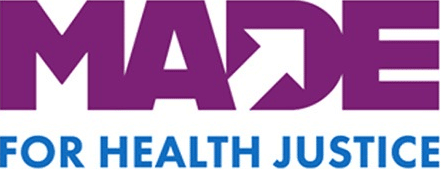Community Health, Structural Racism, and Data
Data are powerful tools that can be used to measure and address multiple dimensions of community health. Unfortunately, the data systems used to track drivers of community health are largely rooted in racist systems and assumptions. Without critical input from the people and communities these data systems represent, these systems create a distorted view of a community’s health and well-being. Data can also be used to fuel narratives, policies, and decisions that perpetuate structural racism and the community health inequities it creates.
Anti-racism, equity, justice, and community power must be at the center of any effort to transform and modernize local data systems — including what they measure, how they operate, and whom they benefit. To realize their full potential, local data systems must be restructured as interconnected ecosystems that enhance community health, connect data across local government sectors, and are accountable to the communities they serve and reflect. This transformation is essential to drive just decision making and progress toward achieving health equity.
Transforming Public Health Data Systems
Inspired by the National Commission to Transform Public Health Data Systems established by the Robert Wood Johnson Foundation (RWJF), MADE for Health Justice is supported through a partnership between RWJF and the de Beaumont Foundation. It is part of a multi-faceted effort to create a more equitable national public health data infrastructure. Direction and technical assistance coordination are provided by the MADE National Office, led by the de Beaumont Foundation.
Support for this initiative was provided in part by the Robert Wood Johnson Foundation. The views expressed here do not necessarily reflect those of RWJF.
Values of the MADE for Health Justice National Office
The goal of MADE for Health Justice is to accelerate the development of local, health-focused data ecosystems that are grounded in anti-racism, equity, justice, and community power. Ultimately, these ecosystems and the information they generate should not simply address the effects of structural racism, but should help dismantle structural racism itself.
In service to this goal, the National Office intentionally administers the MADE for Health Justice initiative with the following values in mind.
We aspire to be honest and transparent about initiative-related processes, activities, and purposes. We strive to communicate with MADE Communities and our collaborators in ways that are clear, thoughtful, and forthright.
We know there is much we do not know. The MADE Communities and the individuals that comprise them offer invaluable knowledge and expertise through their lived experiences. They understand their contexts, needs, and priorities much better than we do. As such, we strive to act with humility and defer to community expertise over technical expertise. We aim to be responsive to the needs and requests of MADE Communities. It is our responsibility to set up MADE Communities and the initiative at large for success.
MADE Communities are our most important partners. They are always at the center of our work and our approaches to it. To that end, we will ask for input and feedback, listen to needs and requests, and ensure that our processes and decisions reflect what we hear. We will collaborate with our MADE Communities as full partners and as fellow co-creators in all aspects of the initiative. Our motto is, “Nothing about them, without them.”
A key goal of MADE for Health Justice is to learn, and we welcome new ideas and approaches. We are open to a range of possible outcomes for the initiative. We understand that mistakes and failures are important drivers of knowledge. We will document and learn from them, as they are equally or more important than lessons gained from successes and achievements. We will continually seek and disseminate new knowledge by educating ourselves and sharing this knowledge with others. We recognize that the initiative’s goal of collecting and sharing learnings will involve obtaining information from MADE Communities. We aim to collect this information in ways that are thoughtful, collaborative, and minimally extractive. We will be dynamic in our approach to learning and evaluation, and we will collaborate with MADE Communities to shape, contextualize, and co-create the narratives and learnings that we gain.
Given our nation’s centuries-long history of oppression and subjugation — and given the ways that this history has shaped American life — we will continually interrogate ourselves and our approaches to our work. We will build on existing work in movements that are advancing social justice, community power building, and cross-sector collaboration for health equity and health justice. We recognize that white supremacy and structural racism have defined our past and our present, affirming the importance of this initiative while also threatening to undermine it. We understand that history matters, and we will strive to be informed and mindful of how a history of racist and exclusionary policies and practices currently impacts different groups’ experiences, opportunities, and resources. We will consider how our decisions may affect the many people and intersecting identities involved in this initiative. We will continually challenge ourselves and the status quo by learning and "unlearning," questioning our own thoughts and motives. We welcome and embrace opportunities to be questioned and critiqued by others, particularly MADE Communities. We recognize that power imbalances exist between the MADE National Office, MADE Communities, and others. Our goal is to continually push against that imbalance and shift power whenever possible. We also recognize that equity means not treating everyone the same. We will support and uplift differences, make decisions that center those who have been marginalized, and provide resources according to need.



 Aspire toward trustworthiness and transparency.
Aspire toward trustworthiness and transparency.